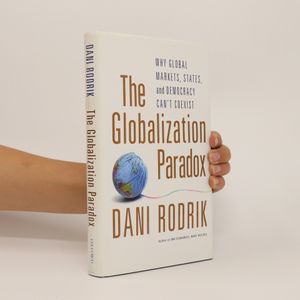Kupuješ přesně tu knihu, která je na fotce
Hodnocení knihy
Parametry
- 368 stránek
- 13 hodin čtení
Více o knize
Globalization, Rodrik argues, rests on shaky foundations. Despite the benefits it has brought to much of the world, there are profound conflicts of interest between democracy, national determination, and full economic globalization. He traces the idea's history, pinpoints its weaknesses, and points the way forward to a new 'smart globalization'
Nákup knihy
The Globalization Paradox, Dani Rodrik
- Jazyk
- Rok vydání
- 2012
- product-detail.submit-box.info.binding
- (měkká),
- Stav knihy
- Velmi dobrá
- Cena
- 217 Kč
Doručení
Platební metody
Tady nám chybí tvá recenze.





